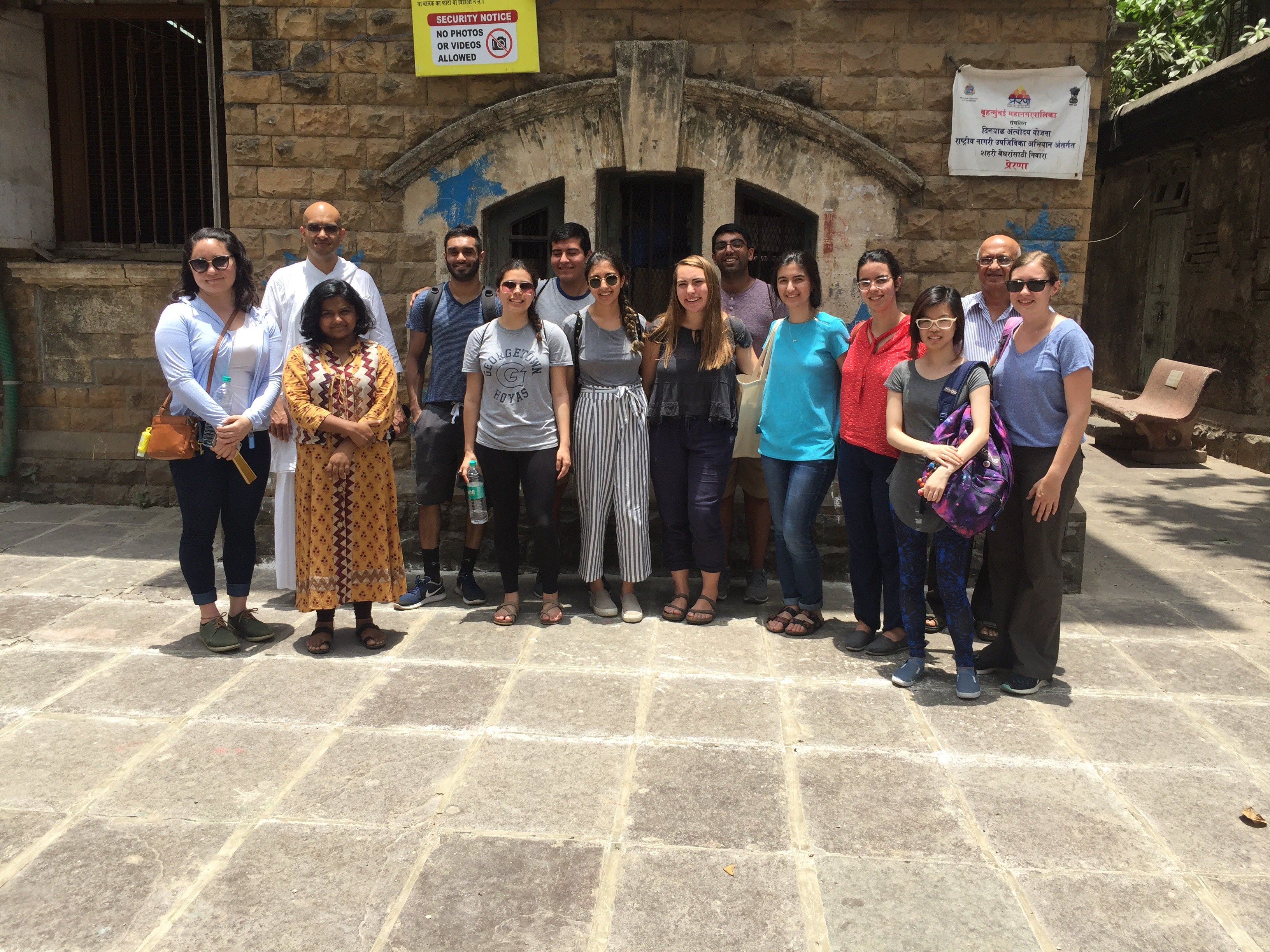Magis: India – challenging, beautiful, thought-provoking

Magis: India Hoyas at Prerana, an organization in Mumbai that works to protect women and children from the threats of human trafficking.
This past May Campus Ministry and the Center for Social Justice launched the first Magis: India trip. Here, Emily Jonsson, COL’ 20, reflects on her experience.
Those that know me well, or those that have ever encountered any piece of writing containing a fraction of my heart, know that I perpetually struggle with capturing the transcendent essence of what makes a moment, a moment. Such a struggle is remarkably comparable to the one I face now when posed with the question, “How was India?”
It was – indescribable. Challenging, beautiful, colorful, lively, thought-provoking, and compelling in all the best ways.
From the beginning, the focus of Magis: India was on healthcare access in Mumbai and what that looked like for marginalized communities in and around the densely populated city, an open-ended question with a variety of perspectives and approaches.
Our answers took the form of a crowded police station filled with women who wanted to share their stories. Long conversations about the detrimental effects of colonialism on LGBT healthcare, and artwork that defined mental health in a new way.
The stories we encountered, be they from the women we met in the Dharavi slums or from Sanjay Oak, the director of Medical Education in Mumbai, fundamentally shifted the way we think about these communities and the issues they face. With each answer an NGO would provide, there existed a growing list of questions that we offered in response.
And yet, these questions were not isolated. They were embedded in a rich cultural tradition, filled with beliefs, norms, language, institutions, clothing, food, and architecture towards which we had varying degrees of familiarity. For 10 days, we immersed ourselves in the discomfort of difference in an effort to build community with each other and with those around us. What began to emerge was unity in diversity, or, as we might be more familiar with on the Hilltop, community in diversity, a Jesuit value which we are often tempted to name-drop rather than seek constantly and intentionally.
Conversations on everything from religious and ethnic backgrounds to tattoos, family life, love for animals, travel, aspirations, worst dates, what brings us joy, and the people and places we call home consumed the long van rides and continued long after our nightly reflections concluded. We learned from the Center for Social Justice’s Mollie Vita about her experiences in Jesuit education, social justice work, and the value of immersion trips.
We pestered Campus Ministry’s Brahmachari Sharan with questions of religion and were surprised when his responses exceeded ours in curiosity, challenging us to become better versions of ourselves. This newfound sense of community embodied the Magis towards which we constantly strive. It was our personal invitation to go deeper into our passions and our relationships with ourselves, with each other, and with God.
Magis: India was more than seeking answers to questions. It was about stimulating discussion — throughout the experience as well as back on the Hilltop — about our own identities, about healthcare, South Asian culture, religion, and what community means and how we foster it in our actions.
Rather than finding comfort and complacency amidst our memories, we must challenge each other to continue in our translation of the moment into a life molded by our experiences. This will take place in classrooms and in lab work, in tedious meetings and in philanthropic ideals, in relationships with chaplains and in long conversations that question cultural norms. We express our gratitude in the work that we do each and every day as we carry within us and live out the stories of the people we encounter. Clinging tightly to the evanescent moment when something foreign felt like home.
Emily Jonsson is studying Classics and Government.